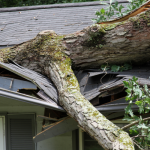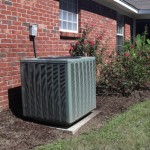Resources
Explore expert articles and guides on risk prevention, asset protection, and insurance insights to help you make informed decisions for lasting protection and peace of mind.
Ontario summers, while beautiful, can bring a unique set of risks, from intense heat and severe storms to property vulnerabilities. Taking preventative steps now can help avoid costly damage. Here are essential winter tips to keep your home safe and secure this season.

Keep your property clear of dry brush, dead leaves, and highly flammable materials, especially near structures. Maintain a defensible space around your home to minimize fire spread.

Summer in Ontario can bring severe thunderstorms, strong winds, and even hail. Trim dead or overhanging tree branches that could damage your home or power lines. Ensure your sump pump is working correctly, and consider a backup power source.

Inspect well pumps and water systems for leaks or damage. If you have a cottage or seasonal property, ensure pipes are ready for increased usage and consider checking for any winter damage that might have gone unnoticed.

Have your air conditioning system serviced to ensure it runs efficiently and reliably throughout the hot summer months, especially in rural areas where temperatures can soar. Clean or replace filters regularly.

With more time spent outdoors, ensure sheds, barns, and other outbuildings are securely locked. Check and maintain farm equipment and ATVs, and ensure they are stored safely when not in use to prevent theft or damage.

After winter's harshness, inspect your roof for any loose or damaged shingles and clear eavestroughs of debris to ensure proper water drainage during heavy summer downpours. This prevents water damage and potential leaks.

Summer often brings an increase in insects and rodents. Seal cracks and openings in your foundation and around windows and doors to prevent unwanted visitors from entering your home.

If you have a pool or trampoline, ensure all safety fencing and gates are secure.

If you plan to be away for extended periods, ensure your home is secured and looks lived-in. Arrange for someone to check on your property regularly, collect mail, and maintain your lawn.

Your life and assets change, and so should your insurance. Take the time to review your existing policies with a broker to ensure you have adequate coverage for all your summer activities and any new additions to your property.
Taking these proactive steps can help protect your home and family from summer-related damage. Need home insurance coverage? Strong Roots Insurance Brokers Ltd. is here to help!
what to read next
Essential Tips to Minimize Risks and Protect Your Assets
Find Answers to Your Most Common Questions
While brokers are here to provide advice and help you select coverage, it is essential to read and understand your policy. Insurance policies are legal contracts, and being aware of your coverage, exclusions, and obligations helps prevent surprises in the event of a claim.
No policy covers every possible scenario. Most insurance policies have exclusions and limitations. For instance, standard home insurance may not cover flood damage or wear and tear. It’s crucial to ask about policy limitations and consider additional coverage where needed.
Providing false or incomplete information (e.g., failing to report a new driver in your household) can lead to policy cancellation or denied claims. Honesty is crucial when applying for and maintaining insurance coverage.
Insurance rates are influenced by broader market trends, such as increased claims in your area, higher repair costs, inflation, and regulatory changes. Even if you haven’t made a claim, these factors can impact your premiums.
Loyalty to an insurer doesn’t always mean you’re getting the best rate or coverage. Insurance companies change their pricing models over time, and new discounts or coverage options may now be available that better suit your needs. We shop multiple insurers to find the best fit for you.
No, as long as the transition is properly managed. We ensure that your new policy starts the moment your old one ends so there is no lapse in coverage.
No, your claims-free history follows you. When you switch insurers, your new provider will apply any applicable claims-free or loyalty-based discounts, as long as your history remains intact.
Most insurers charge a cancellation fee if you cancel mid-term, but in many cases, the savings from switching to a better policy outweigh any penalties. We’ll help you calculate if switching now is beneficial or if it’s better to wait until renewal.
Yes, your clean claims history is an important factor in pricing, and we ensure that your new insurer recognizes it when calculating your premium.
Not necessarily. Often, clients who have been with the same insurer for years find they’re paying more than they should be. We shop for competitive pricing to ensure you’re getting the best value.
One of the most common mistakes is choosing only the minimum coverage required by law. Ontario mandates $200,000 in third-party liability coverage, but that’s not enough – that limit was set in 1979. If you’re in a serious accident, where anyone is hurt, their medical bills, lost wages, and damages could easily exceed that amount, leaving you personally responsible. We recommend at least $2M in liability coverage to protect your financial future.
If you use your vehicle for work-related activities beyond just commuting—such as making deliveries, carrying work equipment, or transporting clients—you likely need commercial auto insurance. Personal auto policies often exclude coverage for business use, meaning if you get into an accident while working, your claim could be denied. Even rideshare drivers (Uber, Lyft) need special endorsements to be fully covered.
It depends. In Ontario, insurance follows the vehicle, not the driver, so if you let someone borrow your car, they may be covered under your policy. However, if the person driving was:
Then your claim could be denied, and you might have to pay out-of-pocket. Always ensure you trust whoever you lend your vehicle to.
Several factors influence auto insurance rates in Ontario, including:
A little-known fact: Some insurers rate certain vehicle models higher than others based on theft rates and repair costs. Before buying a car, check if it has a high-risk rating for insurance.
Many people purchase extra insurance at the rental counter, not realizing that:
Before renting a car, check your existing policies so you don’t overpay for unnecessary insurance.
Many people misunderstand Ontario’s no-fault insurance system. It doesn’t mean you can’t be held responsible for an accident. Instead, it means:
No-fault simplifies claims processing, but it doesn’t eliminate financial consequences for at-fault drivers.
If your home is vacant for more than 30 days, your insurance may no longer cover:
If you plan to leave your home empty, let us know! We can arrange a vacant home insurance policy or add endorsements to keep your property protected.
Cyber liability insurance. Even small businesses in Ontario are being targeted by hackers and cybercriminals. A cyberattack can result in:
Cyber liability insurance helps cover legal costs, data recovery, and financial losses caused by cyber incidents. If your business collects customer information, this coverage is no longer optional—it’s essential.
If you experience a loss, the payout you receive depends on how your policy is structured: